I hope you’re not sick of me talking about my podcast, Cinema Oblivia, because I’m about to talk about my podcast, Cinema Oblivia.
Sorry (not sorry).
The podcast has actually been going pretty well. It’s not setting the world on fire or anything like that, but I didn’t expect it to, especially out of the gate. I’ve been really happy with every episode so far. It’s been a while since my last post here, and I’ve put up quite a few episodes since then.
On March 18, Madeline Koestner and I talked about William Friedkin’s amazing forgotten film Sorcerer, a wild flick about a group of goons transporting nitroglycerin through a South American hellscape. It’s a fantastic movie (with a soundtrack by Tangerine Dream!) and you should totally watch it (and listen to that episode). After that Emma Buntrock-Miller joined me to discuss Brian De Palma’s wacked-out horror-musical Phantom of The Paradise. This movie stars Paul Williams and was a major influence on Daft Punk, so if that sounds cool to you, maybe check it out.
Last week I put up the strangest episode to date. Dr. Sparkle of Chrontendo fame called me up to talk about Seeds, a batshit crazy movie by the late not-so-great Andy Milligan. Even if you haven’t heard of that movie (and let’s be real, you probably haven’t) I think the episode is well worth a listen; we dive into some pretty cool topics like lost films and gay underground cinema.
I’ve already recorded the bulk of the episodes that are going up in April and I’m excited to share them with you. This week Shane Bettenhausen and I talk about the disco nightmare that is The Apple, and the following week an old friend of mine joins me to discuss the 1983 video game sex comedy (yes, really), Joysticks. After that, Erik Pepple, a film scholar and another old friend of mine, comes on for the first Cinema Oblivia double-feature, Rad and BMX Bandits! And finally, I’m very excited to say that I’m closing out the month talking about one of my all-time favorite movies, Bring Me The Head of Alfredo Garcia. Joining me on that episode is none other than Giant Bomb’s own Alex Navarro! Wow!
Let’s celebrate with the most obscure album I’ve ever shard on this site. Seriously. I think it’s the all-time winner.
Beautiful Shateau & Synthesizer
The Charm of Synthesizer: Japanese Melody (Complete Album download)
I’ve been sitting on this one for a while now. I keep saying to myself that I’m going to dig deep and try to uncover more about it, but each time I try, I turn up with nothing. Here’s what I know.
This is a very early project by Matsutake Hideki, aka Logic System. I’ve written about him before, (hell, I even met him once). He was the synthesizer programmer on the early Yellow Magic Orhestra albums, and he’s had quite the career aside from that both as a solo artist and a studio musician. Here, he’s working under the odd (and incorrectly spelled) name of Beautiful Shateau & Synthesizer.
From what I can gather, Matsutake released three albums under this name; Synthesizer 美しき日本の抒情; シンセサイザーが奏でる日本の名歌 – 都会の夜; and this one The Charm of Synthesizer: Japanese Melody. Again, from what I can tell, the first two were issued on LP, while this may have been a cassette only release. There may have been more “Shateau” albums too, I just don’t know.
I’m sorry for the all the caveats and uncertainty, but I literally can find zero information on these albums online in English. And what little I managed to find in Japanese haven’t been much of a help. Again, I can’t even find release dates on these albums. That’s insanely rare for Japanese albums. Most Japanese records print the release date on the cover, down to the day of the week. I don’t know why these are so lacking. I’m sure some of you are saying “well, just go to Discogs,” but they don’t have the release dates either. And trust me, I would know since I entered most of the data and took all of the pictures for all of the releases on the Discogs page!
However, one of the “Shateau” tracks did appear on the Logic System box set that came out a couple years back. On there, the track was given a release date of 1976. That’s the same year that Matsutake released his very first album under his own name, alongside fellow Japanese synthesizer pioneer Tsuneaki Tone, Pop Memories on Moog III. Again though, I really should caveat that with another maybe. There is a “III” in that album’s name, after all. They could have recorded something even before that. Still, I feel that it’s safe to say that the “Shateau” releases probably came out no earlier than 1975, and no later than 1977. These albums are very simple. By 1978 he was experimenting with more complex arrangements, and in the following year he was working with YMO on their debut record.
All the songs on all the Shateau albums are covers of enka songs. Enka is a genre of music that’s often described as “traditional Japanese pop music” and I guess that’s accurate. It’s very pre-rock type stuff. Almost exclusively ballads. It’s the kind of shit that Japanese grandparents just fucking go apeshit for. Obviously, I’m not familiar with the original versions of any of these tracks. So I can’t tell you how many liberties Matsutake is taking with the source material. Given how barren and simple these tracks are though, I feel it’s safe to say that these are probably relatively faithful to the original versions, just like a lot of other early synthesizer covers of pop tunes.
Despite my complete lack of cultural awareness for anything on this album, I do really enjoy listening to it. Most enka songs are usually sad or melancholy, and it translates really well to the minimal arrangements that Matsutake put forth on all of these releases. They’re all so bizarre, like music out of time, obviously very old but recorded in a (then) very new way. Listening to them transports me to another reality, a retro-futuristic world where everyone is dressed like 1950s gangsters, but somehow all have cyberpunk gear hooked up to their trench coats. It’s detached and unfamiliar to anything else I’ve ever heard. It’s so my jam.
None of the Shateau albums I have sound particularly great from an audio perspective, sadly. The records are all pretty banged up, and this tape has seen better days too. Of the lot, I think this tape rip is the best though. It’s a little muddled, and there’s a weird audio glitch in one track that I just couldn’t remove, but overall it’s very clean and clear. I prefer a slightly muddy recording to a heavily scratched one, that’s for sure. If the quality bothers you, I recommend listening on your speakers instead of headphones, it sounds better that way for sure.
Let me know what you think of this one in the comments. I know it’s really out there, but I it’s so fascinating to me.

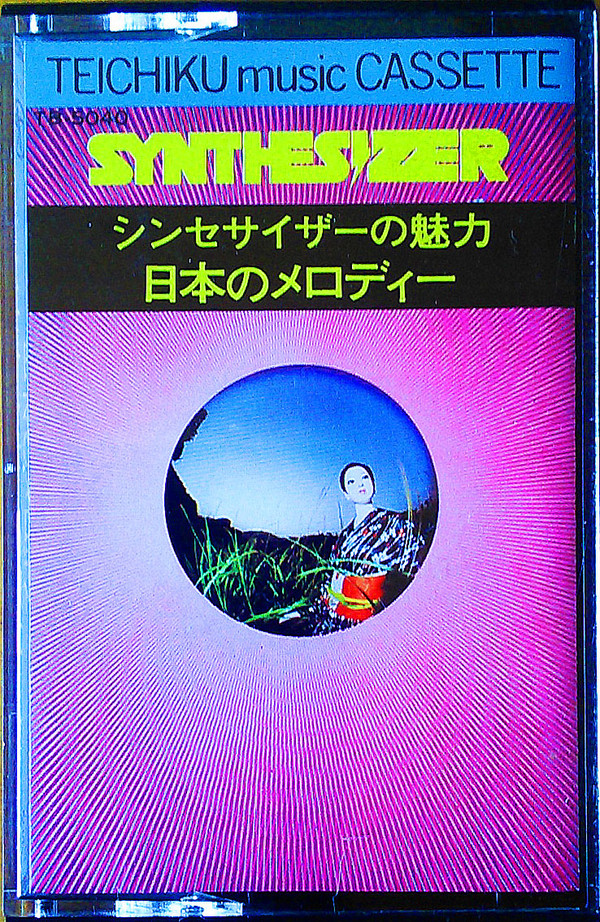
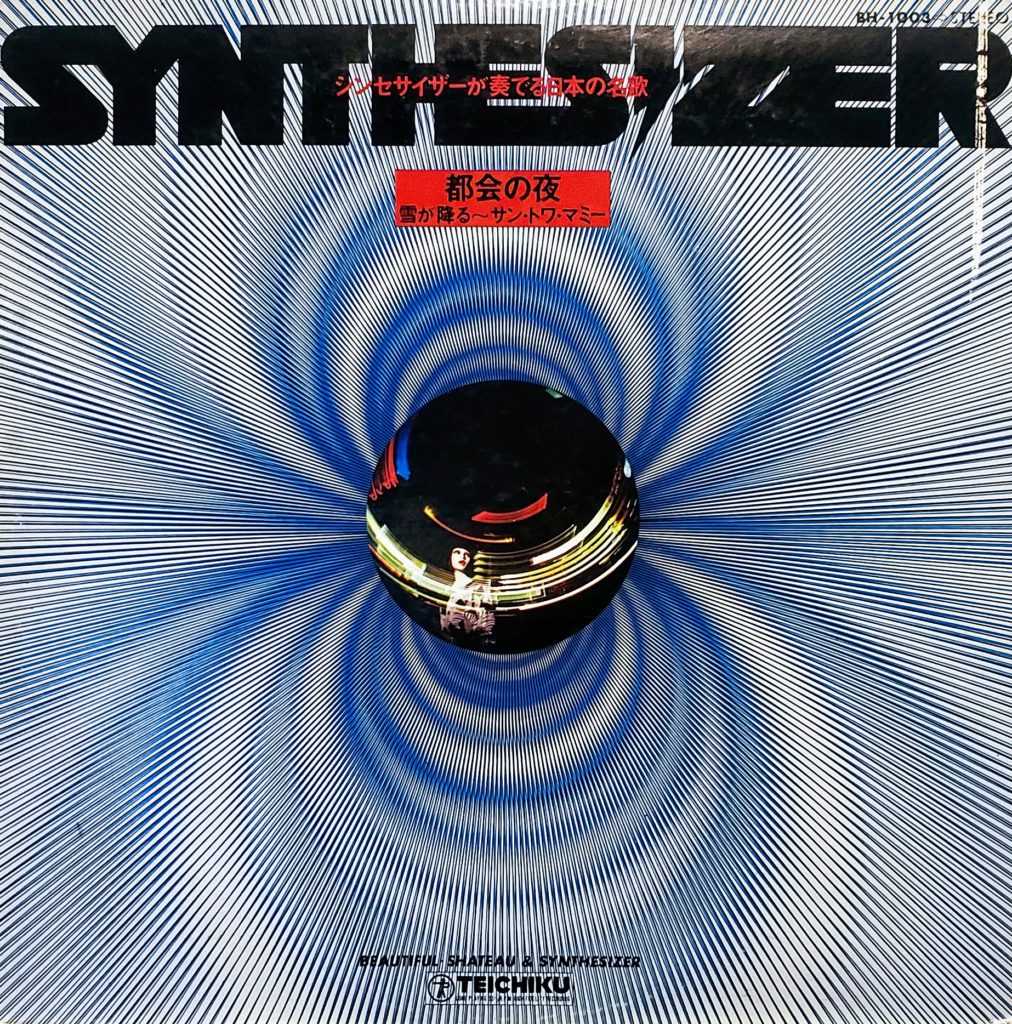
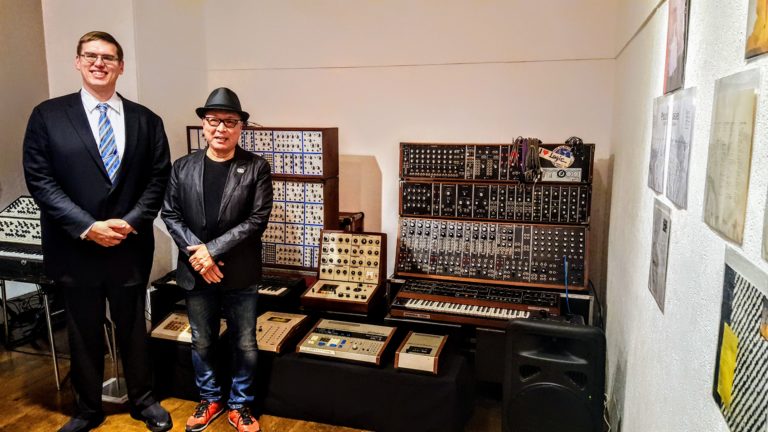
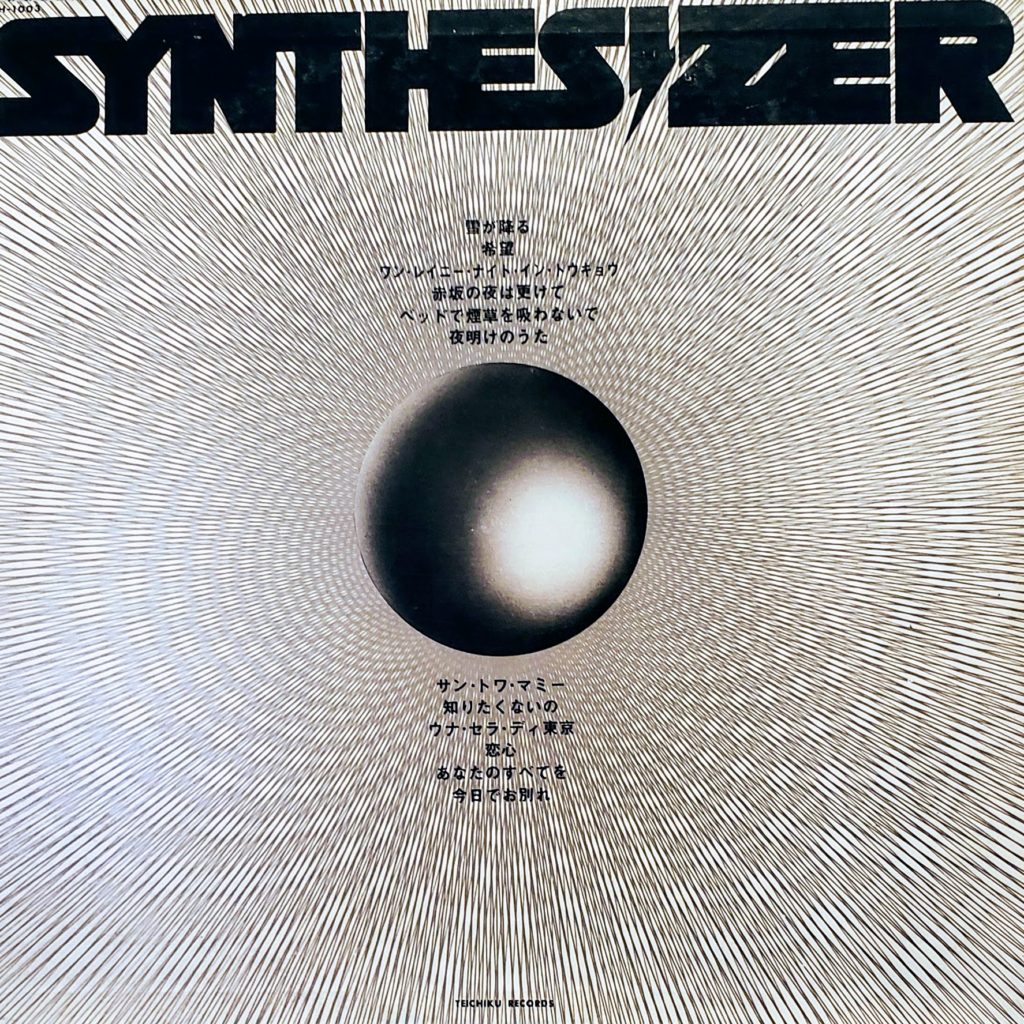
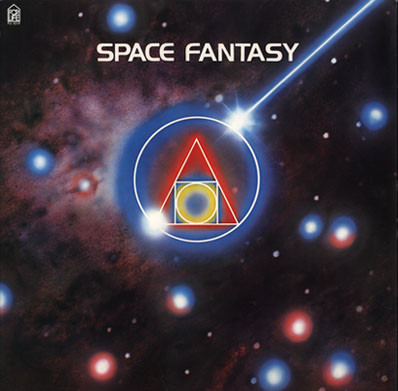
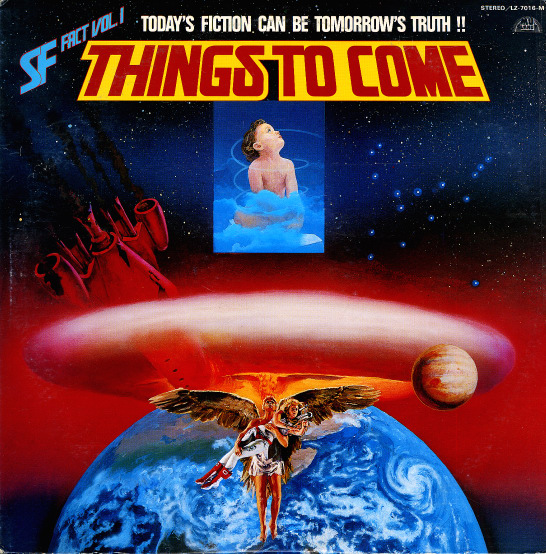
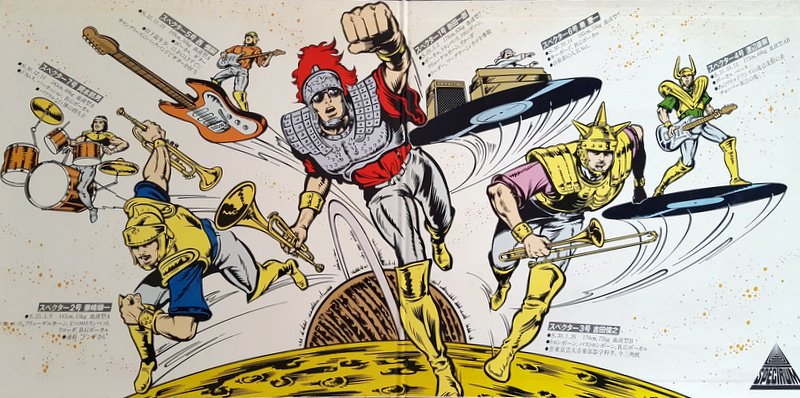
Happy Halloween, Here are More Incredibly Strange Japanese Covers of Western Pop Music
Monday, October 31st, 2016I hope you all had a happy Halloween weekend. I spent mine hobbled with a back injury. But don’t fret, it was not all tragedy. My boyfriend made me homemade salsa and taco salad while we watched Empire Of The Ants, the 1977 horror schlock featuring Joan Collins getting terrorized by an army of giant ants.
Also, I had prescription painkillers, so that was nice.
Ikkaku Tanabe
究極ã®é¸æŠž (Ultimate Decision)This is a Japanese electro cover of Edgar Winter’s “Frankenstein.” But wait, it’s even weirder than it sounds.
The song is made up almost entirely of samples and other digital effects. Vocals are repeated and pitch-shifted to create melodies, while the bassline of “Frankenstein” plays behind them. Other random samples are thrown in too. I swear at about one minute and twenty-eight seconds in it samples a fraction of a second of vocals from “Heaven Is A Place On Earth.” Tell me I’m wrong I dare you.
The bizarre musical nature of the song was enough to make me fall in love with it, but I had to know if the all-Japanese lyrics were equally as batshit as the music it accompanies. Thankfully, my lovely boyfriend (who I love) went through the hassle of translating the lyrics.
And it turns out the song is as balls out crazy as it sounds. The lyrics are a continuous series of hypothetical no-win choices, many of which vulgar or disgusting in nature, hence the name “Ultimate Choice.” Read the translated lyrics below and see just what kind of decisions you’re being forced to make.
Yup.
So who is Ikkaku Tanabe, AKA the Holy Great Ultimate Decision God?
Judging from this track, you might think he was some crazy performance artist or avant-garde musician. But actually he was a Japanese kodan performer. Kodan is a very traditional form of Japanese storytelling that dates back to the 1300s. While humor is a part of kodan, it is not stand-up comedy, which makes this, his sole foray into music, all the more bizarre.
I guess after all those years of talking about historical battles and samurais, the dude had a lot of shit humor built up in him.
Logic System
Classical GasLogic System is Hideki Matsutake, who worked on many of Yellow Magic Orchestra’s albums as a programmer. I really recommend his first two solo albums, Venus and Logic, they’re some of the best electronic music the early 80s had to offer. I also suggest you track down his 1979 album Digital Moon, which is entirely electronic covers of James Bond themes and it might be the greatest thing ever made.
Coming in a close second is this cover of “Classical Gas,” the 1968 instrumental by Mason Williams that you no doubt know even if you don’t know the name of it. Instead of going giving it a rather faithful electronic re-imagining, Matsutake starts out rather conventional and then goes off the fucking rails for an technopop explosion of synthesized keyboard and bass the likes of which you’ve never heard. This is so crazy it should’ve been the theme to a Darius boss battle.
The No Comments
Somebody To LoveIf you ever wanted to hear a cover of “Somebody to Love” that sounds like it’s being sung by the bastard child of Nina Hagen and Kate Bush in a yodeling competition, then yo check it.
I don’t know much about this group, sadly. They released three albums in Japan only in the early 80s and then vanished. I Â don’t even think their albums were even given a CD re-issue. They’re weird. Kind of funky I guess, but really more early new wave, like a polished X-Ray Spex or a rougher version of The Police.
Like I said, weird. If I can find more of their stuff or find out more about them I might share more later.
Posted in Logic System, The No Comments | 3 Comments »